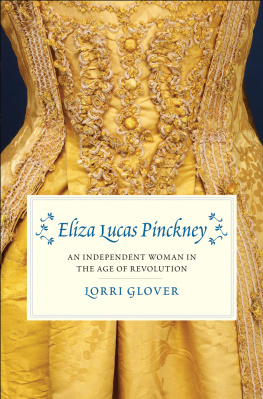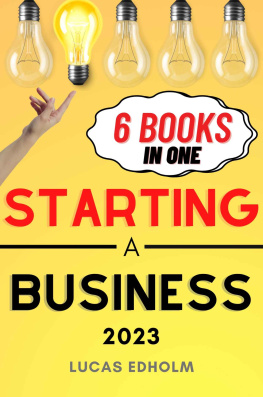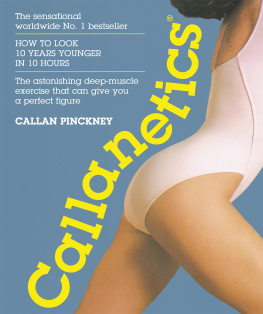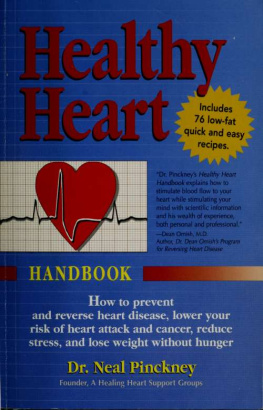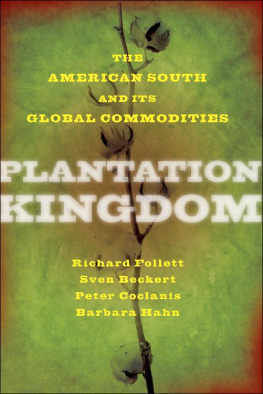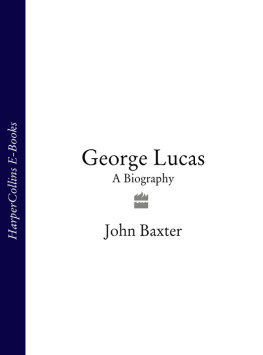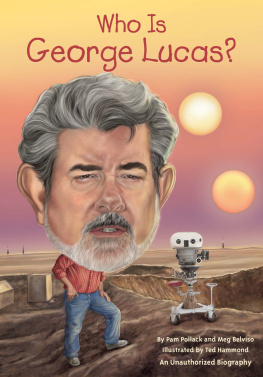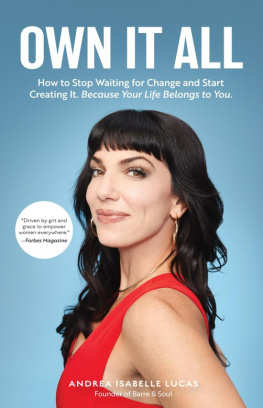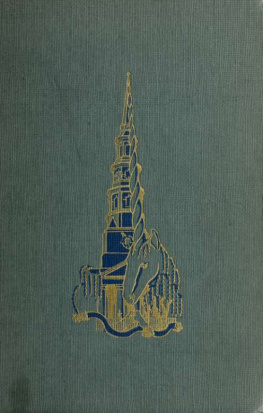Eliza Lucas Pinckney

Published with assistance from the Annie Burr Lewis Fund.
Copyright 2020 by Lorri Glover.
All rights reserved.
This book may not be reproduced, in whole or in part, including illustrations, in any form (beyond that copying permitted by Sections 107 and 108 of the U.S. Copyright Law and except by reviewers for the public press), without written permission from the publishers.
Yale University Press books may be purchased in quantity for educational, business, or promotional use. For information, please e-mail (U.K. office).
Set in Adobe Garamond type by IDS Infotech Ltd., Chandigarh, India.
Printed in the United States of America.
Library of Congress Control Number: 2019953009
ISBN 978-0-300-23611-8 (hardcover : alk. paper)
A catalogue record for this book is available from the British Library.
This paper meets the requirements of ANSI / NISO Z39.48-1992 (Permanence of Paper).
10 9 8 7 6 5 4 3 2 1
Contents
Acknowledgments
Ive been so lucky with this project from start to finish. In 2013 Sarah Case, managing editor at the Public Historian, asked me to review a new digital project, The Papers of Eliza Lucas Pinckney and Harriott Pinckney Horry. I found it outstanding in every regard, and at the close of the review wrote that Constance B. Schulz and her team had created a superb resource to inspire future biographers. I was deep into another project then, with no thoughts of writing about Eliza Lucas Pinckney, but life takes its turns. In spring 2019, Adina Popescu Berk, senior editor at Yale University Press, read an earlier draft of this book with unsurpassed care and precision and guided me toward completion. Between the first idea and the last pass, Ive enjoyed countless adventures and been encouraged, advised, corrected, and inspired by a host of fellow travelers. Dan Smith shared and celebrated it all. We walked and talked about Eliza for hundreds of miles, he read endless pages, sometimes while I stood over him, and he even secured the art permissions. Lucky.
Ami Pflugrad-Jackisch and Craig Thompson Friend read each chapter draft and over several years of deep conversations offered more encouragement and wisdom than I can recount. I have learned so much, about writing, history, and kindness, from these, my treasured friends. Ami even trekked with me across London one December to visit the sites of Elizas homes. Connie Schulz was unfailingly supportive and generously shared her boundless insights into the Pinckney family. I cannot capture my gratitude for her work, her encouragement, and her inspiration. She and Mary Sherrer both read a draft of the biography, sharpening my ideas and correcting my mistakes. The Womens and Gender Studies Research Group at Saint Louis University read and discussed all the chapters, too, keeping me on track. Matt Schoenbachler urged me along when I was doubtful, read excerpts, and fixed a wobbly introduction. My history colleagues and wonderful friends Jen Popiel and Torrie Hester read drafts, shared their own work, and generally inspired me with their examples of excellence. I benefited greatly from a fellowship with the Fred W. Smith National Library for the Study of George Washington at Mount Vernon, which offered the most precious commoditytimein a glorious setting with first-rate staff and an incomparable intellectual community.
I continue to be amazed by how many smart and busy people will take time to talk about research, answer arcane questions, discuss museum treasures and archival holdings, read book chapters, and generously share their time and expertise with a stranger. As I result, Ive encountered many wonderful people and enjoyed many happy days while working on this book. I met Christine Klepper at the Batmobile before she took me through the fourth floor of the National Museum of American History to see Elizas yellow dress. When I arrived at the Charleston Museum, Jan Hiester had laid out artifacts of Elizas life: her bed canopy, her salmon-colored dress, and her blue shoes. Douglas Luery drove me across (very) rough farm roads into the interior of Antigua to point out the locations of Lucas properties. Anne and Bill Williams showed me around the grounds of Ripley House, in Ripley, England, where Eliza lived in the 1750s. Emma Hart met me at a coffee shop in Edinburgh to talk about eighteenth-century Charleston. Agnes Meeker shared her knowledge about Antiguan history over lunch outside St. Johns and then took me on an impromptu tour of sugar mills. Chris Phillips took time from his own research to track down information about Elizas possible burial site in Philadelphia. Mary Jo Fairchild and Virginia Ellison welcomed me to the Special Collections and Archives at the College of Charleston Addlestone Library and Mary Jo Fairchild answered questions long after Id gone. Rachel Monroy, with The Papers of the Revolutionary Era Pinckney Statesmen, read a draft chapter and offered perceptive advice. Karen Anadol corresponded about indigo dye. Anne Boylan allowed me to read her work in progress about radio shows, including two featuring Eliza. Nicholas Butler and Carter Hudgins shared their deep expertise regarding early South Carolina. The anonymous readers at Yale University Press provided excellent recommendations for which I am exceedingly grateful.
Friends and colleagues have been incredibly generous. Geri Thoma found Eliza an ideal home with Yale, and I am deeply appreciative of her connecting me with Adina Berk, editor extraordinaire. Ivy Farr McIntyre and Sandy Slater opened doors in Charleston that aided my research and then talked about Eliza over delightful dinners. Steven Smith diagnosed ailments across three centuries. Samantha Snyder shared her expertise on Philadelphia and read excerpts. Jeff Smith introduced me to Carol Yaster, who in turn connected me to the staff of the St. Peters Church archives in Philadelphia; then Jen Popiel introduced me to Chris Phillips, who visited the archives on my behalf: an example of how lucky Ive been. I benefited from conversations and received encouragement from Gretchen Arnold, Arline Cravens, Christy Fry, David Hildebrand, Georgia Johnston, Evelyn Meyer, Rowena McClinton, Collen McClusky, Cookie and John Muntges, Chris and Tim ONeil, Robert Paulett, Pascale Perraudin, Elisabeth Perry, Annie Smart, Jeff Smith, Kris Smith, Lucy Smith, and Eleonore Stump. Charlene Boyer-Lewis, Catherine Clinton, Anya Jabour, Cindy Kierner, Martha King, Becca Sharpless, and Megan Taylor-Shockley provided encouragement and inspiration. I work in a department filled with superb scholars who make me better by example, including Doug Boin, Flannery Burke, Phil Gavitt, Torrie Hester, Katrina Moore, George Ndege, Hal Parker, Jen Popiel, Mark Ruff, and Silvana Siddali. Saint Louis University foolishly let one of the best go: Stefan Bradley inspires from afar these days. Support from the College of Arts and Sciences at SLU and especially Dean Chris Duncan enabled me to complete this book. Idolina Hernandez, Sam Klee, Molly Lackey, Nicholas DiPucchio, and Bryan Winston provided invaluable research assistance: checking citations, running down obscure references, and proofreading. Dan Heaton, senior manuscript editor at Yale University Press, is the kind of copyeditor every writer wants: meticulous, encouraging, and deeply engaged with the book. Im sure Ive managed to retain errors, despite all their valiant efforts.
I shared parts of this project at the Southern Historical Association, the European Early American Studies Association, the Sons of the American Revolution Conference, and the Southern Association for Women Historians, and benefited from insightful commentary from Cindy Kierner, Maurizio Valsania, Holly Mayer, Christine Sears, and Ben Marsh. I tried out ideas in talks at the University of Toledo and Mount Vernon, and I was lucky enough to discuss early findings at the Newberry Library Seminar on Gender and Sexuality, the Zuckerman Seminar in Philadelphia, and the Providence College Seminar on the History of Early America. Michael Zuckerman, Zara Anishanslin, Thomas Balcerski, Adrian Weimer, and Ted Andrews provided advice that shaped how this book unfolded. As Lawrence Nelson taught me thirty years ago, I have tried to be a good steward of my time and talents and to faithfully, intellectually write the life of Eliza Lucas Pinckney.
Next page
